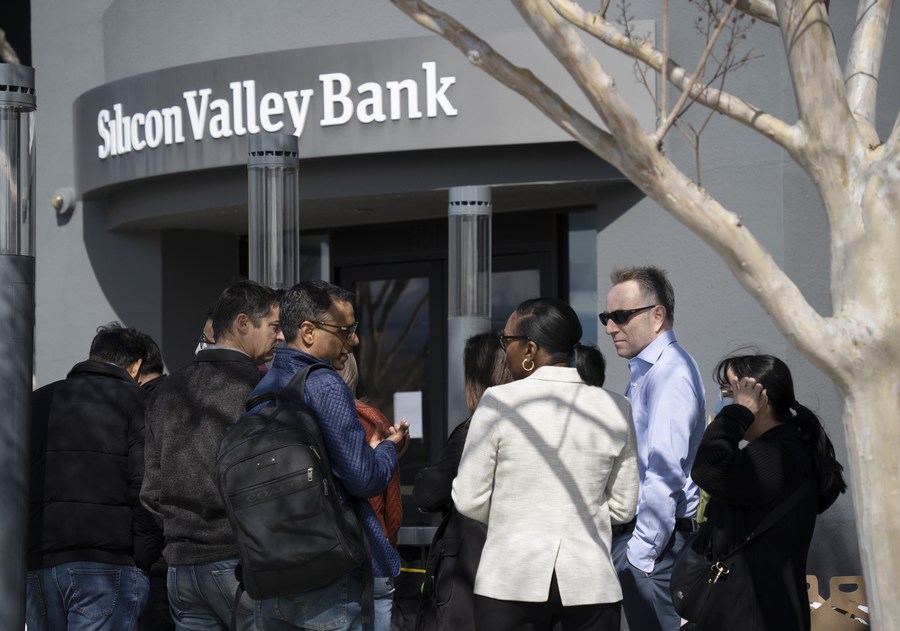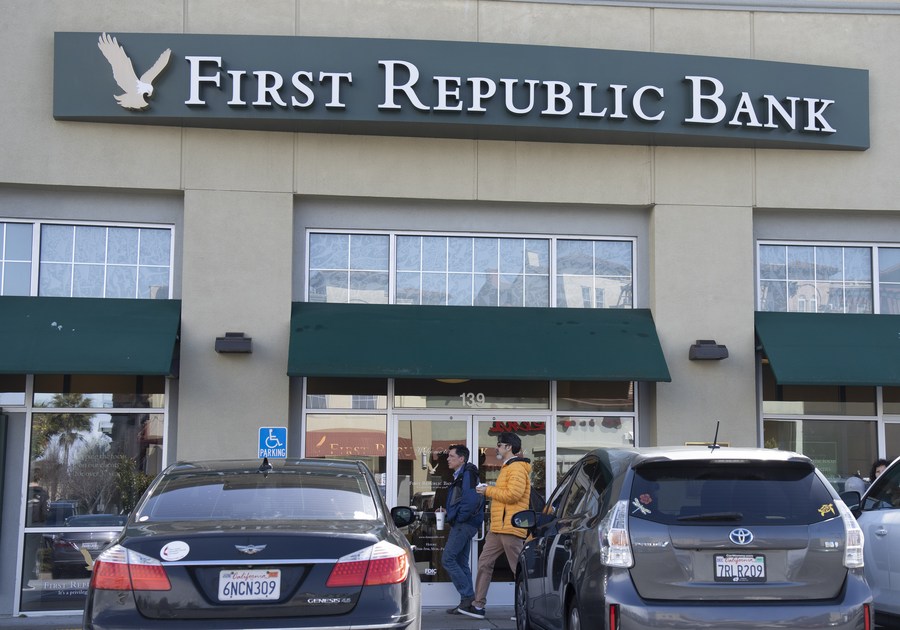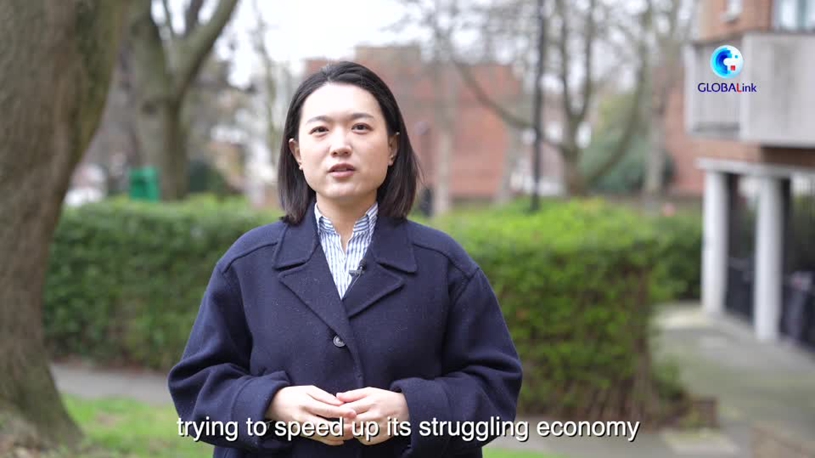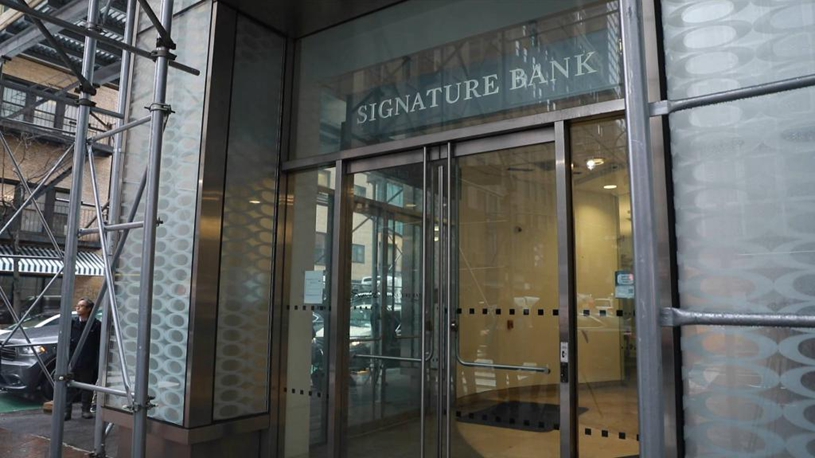
People queue up outside the headquarters of the Silicon Valley Bank (SVB) in Santa Clara, California, the United States, March 13, 2023. (Photo by Li Jianguo/Xinhua)
Talking about the root cause of SVB's collapse, Scott Davies, founder of CDAM, an investment management firm in London, argued that the bank's management should take most of the blame, followed by the changed regulation and by the Federal Reserve's interest rate hikes.
LONDON, March 16 (Xinhua) -- The recent collapse of U.S. lender Silicon Valley Bank (SVB) has once again demonstrated the importance of banking regulation in terms of reducing risks, a London-based financial expert told Xinhua in a recent interview.
The implication of the SVB crisis for the financial system was that regulation was probably going to be re-examined, said Scott Davies, founder of CDAM, an investment management firm in London.
SVB was shut down by U.S. regulators last Friday after the tech-focused lender reported massive losses from securities sales, which triggered a run on the bank's deposits. It marked the second-largest bank failure in U.S. history.
Davies, also the chief investment officer of CDAM, recalled that a few years ago U.S. legislation raised the threshold for monitoring banks. However, the deregulation and reduced reporting that followed may have raised the risk of a banking crisis like this, he said.
According to a CNN report, in 2018, then-President Donald Trump signed a law, which freed some banks of SVB's size from stricter policies put in place in the wake of the 2008 financial crisis.
Under the old rules, banks with at least 50 billion U.S. dollars in assets were required to "undergo an annual Federal Reserve 'stress test,' to maintain certain levels of capital (to be able to absorb losses) and liquidity (to be able to quickly meet cash obligations), and to file a 'living will' plan for their quick and orderly dissolution if they were to fail," said CNN.

A man walks past the U.S. Federal Reserve in Washington, D.C., the United States, on March 16, 2022. (Photo by Ting Shen/Xinhua)
But the 2018 rollback law made the rigorous regulations only for banks with at least 250 billion U.S. dollars in assets, it said.
SVB would have been monitored, and their misjudgment would have been stopped a long time ago if the threshold remained at 50 billion U.S. dollars, said Davies, who has been working in the financial industry for more than two decades.
Talking about the root cause of SVB's collapse, Davies argued that the bank's management should take most of the blame, followed by the changed regulation and by the Federal Reserve's interest rate hikes.
The incident is going to raise a question for the Federal Reserve about whether to continue raising interest rates, said Davies. "Monitoring policy will likely be affected."
However, the veteran investor was not worried about risks of contagion. He stressed that SVB had some company-specific features, such as being very tech-focused and startup-favored and had been growing much faster than others in the past few years.
"I think the reason why it's not contagious is because not that many banks have seen this type of growth. And the system is unlevered." He emphasized that SVB didn't have a loan book problem.

This photo taken on March 13, 2023 shows the exterior view of a First Republic Bank branch in Millbrae, California, the United States. (Photo by Li Jianguo/Xinhua)■












